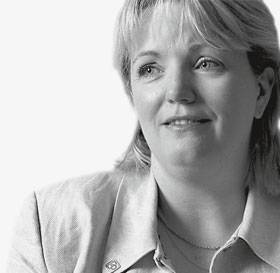Money Management
Cathryn Hayes details everything a prospective franchise owner should know about costs and bank funding.

With the UK economy moving into recovery, we are seeing a real increase in franchise business confidence. There is a growing need to ensure that viable businesses are able to obtain the finance they need to support the recovery.
Franchising can be a safer option than going into business on your own. A franchisee should have a tried-and-tested format to follow, training and support from their franchisor and a network of fellow franchisees to speak to, so although you own and operate your own business, you are not doing it alone.
A good franchisor will encourage and help their franchisees with business planning, both at the outset and on an ongoing basis, helping the business to get off to a flying start and continue to develop.
Many small business owners are just too busy to look at what is happening in the marketplace, what competitors are up to, how customers’ needs might be changing but a franchisor should be looking at research and development, keeping their network of franchisees ahead of the game.
All this support means that banks are going to be much happier to lend to a start up franchisee. HSBC were pleased to support the first Dunkin’ Donuts store in the UK opening in Harrow, Middlesex. The new store has created over 25 jobs in the area and the partners have big plans to expand their operation creating even more local jobs.
Before you are ready to talk to the bank about borrowing money to start your franchise, you need to establish how much funding you will require. There are a number of costs that need to be taken into account depending on the type of franchise. The initial franchise fee is only really part of the picture:
- An owner/operator franchise may need to purchase or lease a liveried van
- You may need to fund opening stock
- A retail franchise will incur the cost of leasing premises and any refurbishment requirements as well as shop front, branding, fixtures and fittings
- If employing staff, you may have recruitment and uniform costs
- There will be marketing costs involved with an official launch of the business
- Working capital will also be required (what you need to live on prior to the business generating cashflow and profits)
- If training costs are not included in the initial franchise fee they will have to be factored in
You may also need to think about professional charges related to any property transaction, such as lawyer, architect and surveyor fees, as well as insurance. Once up and running, you will pay the franchisor ongoing management services fees – this may be a percentage of your turnover, a mark-up on products provided or a fixed fee. You should do your homework and fully research what you will be getting for your money both at the outset and once your business is trading.
For an established franchise, most of the major banks will lend up to 70 per cent ofthe start-up costs and for new franchises the figure will probably be 50 per cent. You will usually pay the borrowed money back over a five-year period, depending on the length of your franchise agreement. The first step is to establish how much money you can put in to the business. What can you afford to invest? Have you got savings? Can your family help?
Prepare a full list of your personal expenditure: mortgage, hire purchase, household bills and so on. This will show how much money you will need to take out of the business in order to live.
Start preparing your business plan – this is a vital document to obtain finance from the bank. As part of your business plan, you will need to prepare cashflow forecasts for the first couple of years of the business. Your franchisor will help, but you need to be sure that you understand the figures, what they are based on and how much you will have to turnover in order to break even.
It is important to consider the financial implications carefully before buying a franchise. You are entering into a long-term commitment and need to get the finance right at the outset. A well-developed, high-quality franchisor will recognise the personality attributes that make for a successful franchisee and will be looking to attract those types of people to join their network.
Cathryn Hayes is Interim Head of Compliance & Finance at British Franchise Association and was previously Head of Franchising for 10 years at HSBC.



